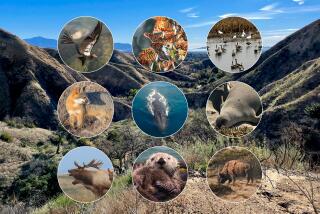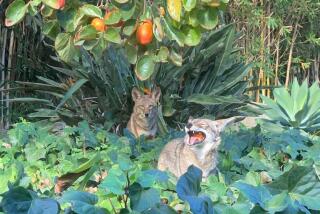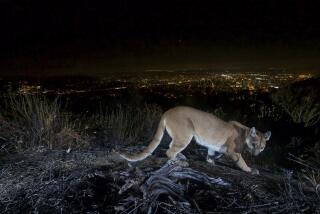The stranger among us
The 4-mile-long, finger-shaped Hillcrest Open Space area in Thousand Oaks laps into a patchwork of suburban streets.
Coyotes live here. Like us, they are growing in numbers. And like us, they have increased their home ranges, sometimes traveling miles to skirt denser suburbs and freeway barriers.
Seth Riley, wildlife biologist for the Santa Monica Mountains National Recreation Area, is concerned about the loss of coyotes to speeding cars and rat poison.
To help us better share space, he is heading a study of about 40 coyotes, using radio collars and a National Park Service SUV with a rooftop antenna to monitor their activities. What are the coyotes doing out there?
One day last summer, his colleague, Jeff Sikich, listened for the beeps of a typical family group comprising Coyote 122 and its known associates: Coyote 119, an alpha male, and his mate, Coyote 117, an alpha female; and Coyote 125, a yearling male.






